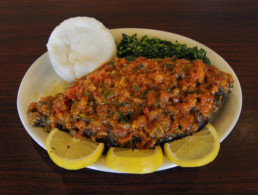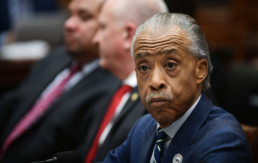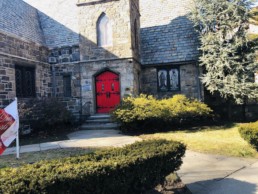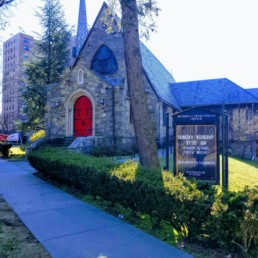Amid Pandemic, the Wichita Kenyan Community Unites Virtually Through Food and Family
As published on Religion News Service
Amid Pandemic, the Wichita Kenyan Community Unites Virtually Through Food and Family
Kelly Davis | kwd2111@columbia.edu
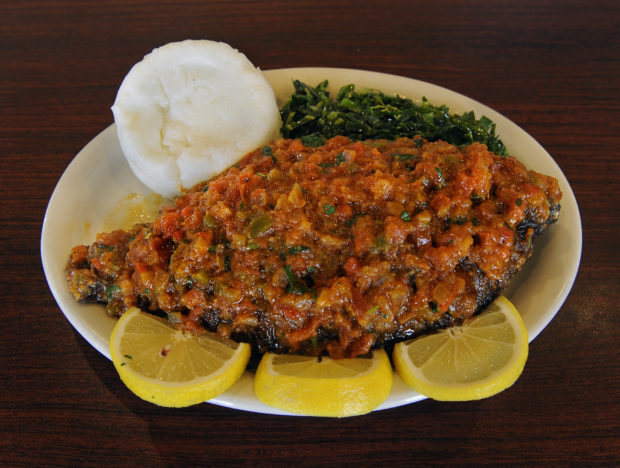
WICHITA, Kan. (RNS) — Mirriam Oyugi planned on having her two sons at home for Easter and was eager to make all of their favorite Kenyan dishes. When their travel plans were hindered due to the pandemic, Oyugi said, her sons opted for cooking lessons instead.
“I taught my boys how to make chapatis on Easter,” Oyugi said. “We did it on video and went through the whole process together. They made theirs and I made mine. I think they had a great time!”
The Kenyan community in this Midwestern state is a close-knit group, with most of its members sharing in common their Christian faith. Protestant church membership in the community is normal, and many Kenyans come together in houses of worship to foster a sense of diaspora community.
During holidays and celebrations, they usually gather together in parks and at people’s homes, eating traditional Kenyan foods such as nyama choma (roasted meat), ugali (maize) and one of the most beloved East African dishes, chapati (unleavened flatbread). This year, of course, is looking a little different due to the coronavirus pandemic, and many Kenyans in Wichita are struggling to find ways to fellowship, a need that is heightened for those who may already feel displaced and far from family. But, like so many others around the globe, they’ve turned to technology to bring them together.
Oyugi said that since Easter, the family has made chapatis via video twice more. She said that although the family can’t be together in person, they are still as connected as ever.
“Something good came out of this,” Oyugi said. “I have some boys who can make very good chapatis.”
Many Kenyans began immigrating to the United States in the 1960s, according to members of the community. At the time, the Kenyan government was advocating for more Kenyans to pursue educational opportunities, leading to scholarships for further studies at U.S. universities. Kenya is among the top five countries with the largest number of African immigrants in the United States, with approximately 136,000 Kenyans widely dispersed across the country, according to Pew Research.
Breakthrough Community Church is a vibrant, Pentecostal congregation in southeast Wichita with approximately 50 members, headed by Kenyan pastor Anthony Macari. The church is known for incorporating both Swahili and English songs with traditional Kenyan beats to create a compelling worship experience for its congregants. Amid the pandemic, the church switched to virtual services on March 22 and there are no current plans to resume in-person services due to restrictions on large gatherings.
In addition to church, people in the community such as Jane Njagi have been taking to Facebook Live to share personal recipes for more complex Kenyan dishes, like mukimo (mashed vegetables) and mandazis (fried bread).
“We are still together, but not together physically, so people are still communicating through social media,” Njagi said. “That is how people have been staying busy.”
At home, Njagi said her three young sons have been helping in the kitchen more than ever.
“It’s bringing a certain togetherness,” Njagi said. “One of my sons is now a professional baker.”
Her family has also taken on a new experiment: learning to cook American food.
“The other day, we made pizza from scratch,” Njagi said. “I’ve been in the United States for almost 20 years and I have never made pizza from scratch. That was very interesting.”
Many Kenyans are also taking to traditional remedies to keep themselves healthy, like mixing hot water, lemon, ginger and honey.
“Herbal remedies have been there since time immemorial,” said Barack Nyakudi. “That was our way of treating people when we didn’t have medications.”
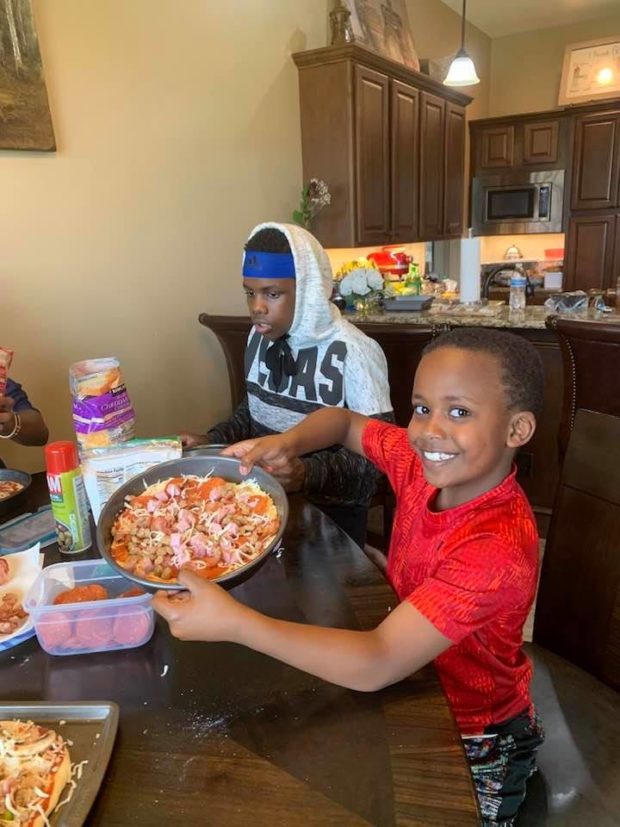
Many in the Kenyan community are using WhatsApp to continue fellowshipping in isolation, according to Marie Macari, first lady of Breakthrough Church.
“We have WhatsApp groups for the entire church and for the women,” Marie Macari said. “We are putting Bible verses there to encourage each other.”
Njagi said that while quarantine has been increasingly difficult in a time when community members need each other more than ever, the app has been used to fill in the gap of physical connection.
“One of the people had a death in the family,” Njagi said. “They communicated through WhatsApp and people got together and contributed.” (It is a custom for Kenyans to offer financial support in times of death, to cover funeral costs and other expenses.)
As the world struggles to deal with the realities of the coronavirus, many Kenyans are praising God for his protection. The number of coronavirus cases in Kenya is surprisingly low, although it is beginning to increase. On Wednesday (May 27), for the first time, Kenya recorded a three-digit increase in new cases over a 24-hour period, taking the national tally to 1,471. There have been 55 COVID-19 deaths in the country of 50 million people.
More than 80% of the Kenyan population identifies as Christian, according to Pew Research — and religion is playing a significant role in the community’s reaction to the pandemic.
“I think that the heart of God is on Kenya,” Oyugi said. “The Bible says that God cannot give you more than you can handle. Imagine if what we are seeing in other countries like America happens in Kenya. Our country cannot handle that.”
Despite the low number of confirmed cases in Kenya, the virus poses other challenges. Susan Williams said the country’s stay-at-home orders are contributing to other forms of suffering.
“People in the villages go to the market each day to get their daily bread,” Williams said. “Now they can’t do that. We thank God that people are not dying but there are also people going to bed hungry.”
Despite the external hardships the virus has brought upon the country, many feel the relatively low number of deaths is also evidence of God’s hand on Kenya. Williams said prayers for protection from the virus have had a significant impact on the lack of spread across the country.
“Melinda Gates said ‘Africans will see dead bodies in the streets,’” Williams said. “We haven’t seen that. People have been praying really hard and fasting about it. There is power in spoken word. Our faith has seen us through, I can say that for sure.”
Some in the Wichita Kenyan community are embracing the stay-at-home orders and using this time to strengthen their relationship with God.
“I have been reading my Bible several times a day,” Oyugi said. “It is very good to have that personal time with God. Having a relationship with God has been very important.”
Teresia Wambugu said now that socializing has come to a halt, families should focus on spending quality time eating and praying together, which is “the way the Lord wants it.”
“Every weekend, we are cooking to take food to socialize,” Wambugu said. “Now, we’re not going anywhere. But for some people that’s good. We had forgotten about God. Families weren’t eating together. Now, they are home like a family.”
Wambugu said she trusts God to see her community, and the world, through these turbulent times.
“God will protect us,” Wambugu said. “He’ll hide and cover us with his blood, even if we have masks or we don’t. The blood of Jesus can cover us from head to toe.”
Rev. Al Sharpton On The Black Evangelical Vote
As published in Religion Unplugged
Rev. Al Sharpton On The Black Evangelical Vote
Kelly Davis | kwd2111@columbia.edu
While upwards of 80 percent of black Americans have voted Democrat since the 1960’s, many are also Christians. As such, black voters make up the most conservative block of the Democratic Party.
Forty percent of black Democrats describe themselves as moderates, while 25 percent identify as conservative and 29 percent identify as liberals, compared to 55 percent of white Democrats, according to Pew Research. Fifty-five percent of black Democrats say belief in God is necessary for morality, compared to 89 percent of white Democrats who say morality is not linked to religion. And while 24 percent of black men approve of Trump, only 6 percent of black women do.
Trump’s opposition to abortion and support for traditional family values has appealed to many evangelical Christians, and black evangelicals are no exception. Only 51 percent of black Americans support same-sex marriage compared to 62 percent of white Americans, regardless of religious affiliation. Among two prominent black Protestant traditions, 74 percent of Church of God in Christ members and 68 percent of National Baptist Convention members said they strongly oppose same-sex marriage in 2014.
Still, 80 percent of black evangelicals who voted in the midterm elections in 2018 disapproved of Trump, according AP VoteCast, and in 2016, only 6 percent of black voters supported Trump.
Rev. Al Sharpton, civil rights leader and host of PoliticsNation on MSNBC, sat down with Religion Unplugged to discuss why some black evangelicals support the Trump administration and its policies.
“Life for blacks and whites in this country is still much different and that is also true in the evangelical community,” Sharpton said. “So they may agree with some of what white evangelicals preach, but when it comes to how their lives are going to be managed and governed, there’s a difference because they understand they’re going to be governed differently.” When asked about whether people of faith should consider their personal morals and values while voting, Sharpton said he ultimately believes that there is nothing wrong with that.
“Now that does not mean you want to see the tenants of a given church or the dogma of a church in government,” Sharpton said. “I think that there is a division between church and state but there is not a division between the voter and the voter’s values.”
Sharpton also weighed in on a clip of black pastors and leaders in Wichita, Kansas who claim that Trump touts Christian values but his actions contradict Biblical values. The leaders urged that evangelical voters weigh more than same-sex marriage and abortion in their 2020 vote for president.
“Jesus did not preach to hate homosexuals, nor did he preach that the only life to sanctify is in vitro,” said Lincoln Montgomery, pastor of Tabernacle Bible Church.
“There were 22 Republican candidates that all probably felt the same about abortion, probably felt the same about everything else that traditionally we care about as people of faith,” Councilman Brandon Johnson said. “Why didn’t you vote for them?
Sharpton agrees evangelical support for the president can be hypocritical.
“I think it’s very clear that even in the faith community there is a very serious polar view of Donald Trump,” Sharpton said. “You can only wonder how some of the white evangelicals can preach one thing and give him a pass.”
Sharpton also watched a clip of black laypeople expressing relief that the president is putting traditionally Christian values at the forefront (for example, Trump’s dedication to appoint exclusively pro-life judges.)
“What’s the other side?” Benji Irby, from Queens, said. “Either you go with Trump and you deal with Christian family values, or you go with them, and you’re dealing with transgender everything, abortion everything.”
“Being a Christian, I don’t see absolutely no way to vote for the Democrats,” said Derrick Gibson, also from Queens. He reasoned that Democrats support “nine-month abortions, infanticides, and transgendering,” which he says is a desecration of the body.
Sharpton argued that it is not so simple.
“I may disagree with abortion personally,” Sharpton said. “That’s not the issue. The issue is do I have the right to put my personal will on another person? Suppose someone of a different religion becomes president. Do they have a right to make me as a Baptist illegal?”
According to Pew Research, 25 percent of all Americans identify as evangelical Protestants, while black evangelicals make up just six percent. Sharpton said that if the 2020 election ends in a tight race, the black evangelical vote could make all the difference.
“To be Biblical, sometimes you have to take smooth stones to bring down Goliath,” Sharpton said, referencing the Bible story of David, a young shepherd boy who defeated a giant with God’s help and later became a king. “If it’s close, six percent might weigh in a lot.”
'Your Name is Higher Than Covid-19!'
'Your Name is Higher Than Covid-19!'
Kelly Davis | kwd2111@columbia.edu

WICHITA, KS. – Seemingly undaunted by an empty church, the worship leader stands at the altar and belts out gospel classics, enthusiastically encouraging the congregation to clap and sing along. His audience, watching at home on Facebook Live, politely obliges.
This has become standard practice for Sunday services at Heart of Christ, a United Methodist Church, in Wichita. For the last two Sundays, in the midst of the rapid spread of the novel coronavirus across the nation, services have moved exclusively online, shaking up church infrastructure and many other houses of worship along the way.
On March 22, Heart of Christ began streaming services online. The church’s Facebook page shared an announcement from the Great Plains United Methodists, which represents parts of Kansas and Nebraska, citing that they would be following CDC guidelines and moving to a digital platform. The statement also says that despite the fear around COVID-19, specifically around the negative financial impact that the virus has had, the bible tells us to “fear not.”
The head pastor of Heart of Christ, the Rev. Ronda Kingwood, put out her own statement, encouraging the church that although the congregation would not be meeting inside church walls, ministry would still continue.
“We will be ministering to our elderly, our single parents, the nursing homes in our community and others that may need help in this time,” Kingwood wrote on March 20.
On March 29, after the worship leader finished his song, Kingwood’s sermon from the church sanctuary seemed fitting for the times. She started off her message with a prayer, encouraging viewers that God is doing a great thing in the midst of the chaos and turmoil in the world. With her emphatic voice, Kingwood said that the origins of the pandemic came straight from the pits of hell and pleaded the blood of Jesus over the virus.
“Your name is higher than Covid-19!” Kingwood proclaimed.
She lifted up in prayer healthcare workers across the globe on the front lines fighting the virus, as well as those suffering from physical ailments.
“Let healing flow through hospital hallways,” Kingwood pleaded.
She prayed that the families of the sick would be strong in this time and asked that people would use common sense to practice social distancing and take the CDC guidelines seriously. She ended the prayer by giving glory and praise to God in the midst of it all.
Kingwood then jumped into the book of Ezekiel, citing the passage in chapter 37 where God brings Ezekiel to the valley of dry bones. Despite the death and decay all around him, Ezekiel still remembers that God is sovereign and that He can “breathe life into these dry bones.” Kingwood related this scripture back to what is happening across the world today. She reminded her congregation that although it may seem like we are all in a dark valley of anxiousness and uncertainty of the future, God’s people should use Ezekiel as an example that He can turn around any situation, no matter how bleak it seems.
Just like Ezekiel, God is showing us that He got this thing,” Kingwood declared. “God can use any situation and then turn it around. There is nothing impossible for our God.”
Blessed are the Top 10
Blessed are the Top 10
Kelly Davis | kwd2111@columbia.edu
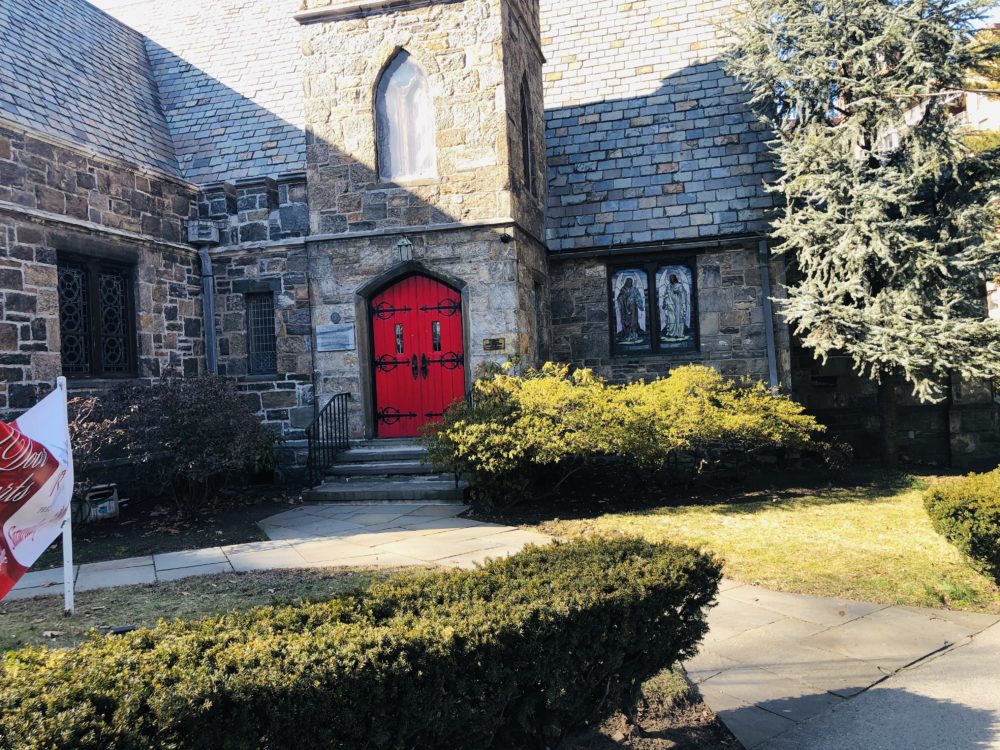
It’s Oscar Sunday, and in a Gothic-style church in the Riverdale neighborhood of the Bronx, people of all ages and races sit patiently in the quiet sanctuary. Reverend Krystin Granberg rests her arms comfortably on the pulpit as she begins her sermon for the 10:30 a.m. service at Riverdale Presbyterian Church, located at 4765 Henry Hudson Parkway. Her topic is not a Bible verse. Her message is not fire and brimstone.
“I love Oscar Sunday even more than Super bowl Sunday,” Granberg begins. Church-goers respond with a chuckle and the solemn faces in the room seem to be at ease a little bit.
Much to my surprise, Granberg’s message is centered around today’s pop culture. She speaks about the trend of “top 10” lists.
Top 10 movies of 2019
Top 10 vegan restaurants in NYC
Top 10 ways to get fit in the new year
But religion isn’t far behind. “Jesus has a top 10 list, too,” she remarks.
She proceeds to introduce a familiar passage from the bible most commonly known as the beatitudes.
“Blessed are the poor in spirit, for theirs is the kingdom of heaven.”
“Blessed are those who mourn, for they will be comforted.”
“Blessed are the meek, for they shall inherit the earth.”
Matthew 5: 3-5
She compares the beatitudes with the to do lists that modern-day culture sets for us to be successful. Granberg explains that the bible verses and other similar scriptural references are not the top 10 lists like the world gives us, but rather a list of things that have already been done.
When Jesus recites the beatitudes, he is not saying what believers must do in order to be good Christians. Rather, he is explaining what the kingdom of God presents, as gifts, to those who believe in Him and his message of salvation.
Tying her message back to the Oscars, she recalls one of her favorite movies, “Monty Python’s Life of Brian.” While the movie offered her powerful lessons that she still holds today, Brian, the farcical main character, was just as persecuted as Jesus was for spreading the message of salvation. Brian’s struggles in various scenes of the movie reflect Jesus’ own challenges.
Granberg reminds the congregation that they should not ask God what to do to be worthy of His love, instead to know that any shackles of anxiety, fear, depression and worry have already been broken. The kingdom God is about being rather than doing, she says. We are already blessed, and there is nothing more that we need to do to be approved. She adds that the only thing the Lord requires of us is to, in the words of the Prophet Isaiah, do justice, love kindness and walk humbly with the Lord.
She also says that if she had the chance, she would write additional beatitudes and include things like:
Blessed are the truthtellers
Blessed are the caretakers
Blessed are the peacemakers
And above them all: Blessed are the rulebreakers, who advocate for the most destitute of society.
She says that she was perplexed that so many people are confused with what others are not doing. This creates a culture of people that are so anxious about what they are or not doing, they end up projecting their feelings of failure onto others. Referring back to the to do list, Granberg points out that church gives everyone an opportunity to be critical.
As the sermon wears on, she goes back to the phrase of what the bible requires of us: to do justice, love kindness and walk humbly with the Lord. She cites biblical figures that ministered to lepers and preached to them about the love of God.
Closing her sermon, Granberg says that in trying to make a difference in this world, we can start by impacting each and every person we meet. She pleads that in this world of chaos and turmoil, her congregation preaches cheerfulness and radical love.
Ringing of the Bells
Ringing of the Bells
Kelly Davis | kwd2111@columbia.edu
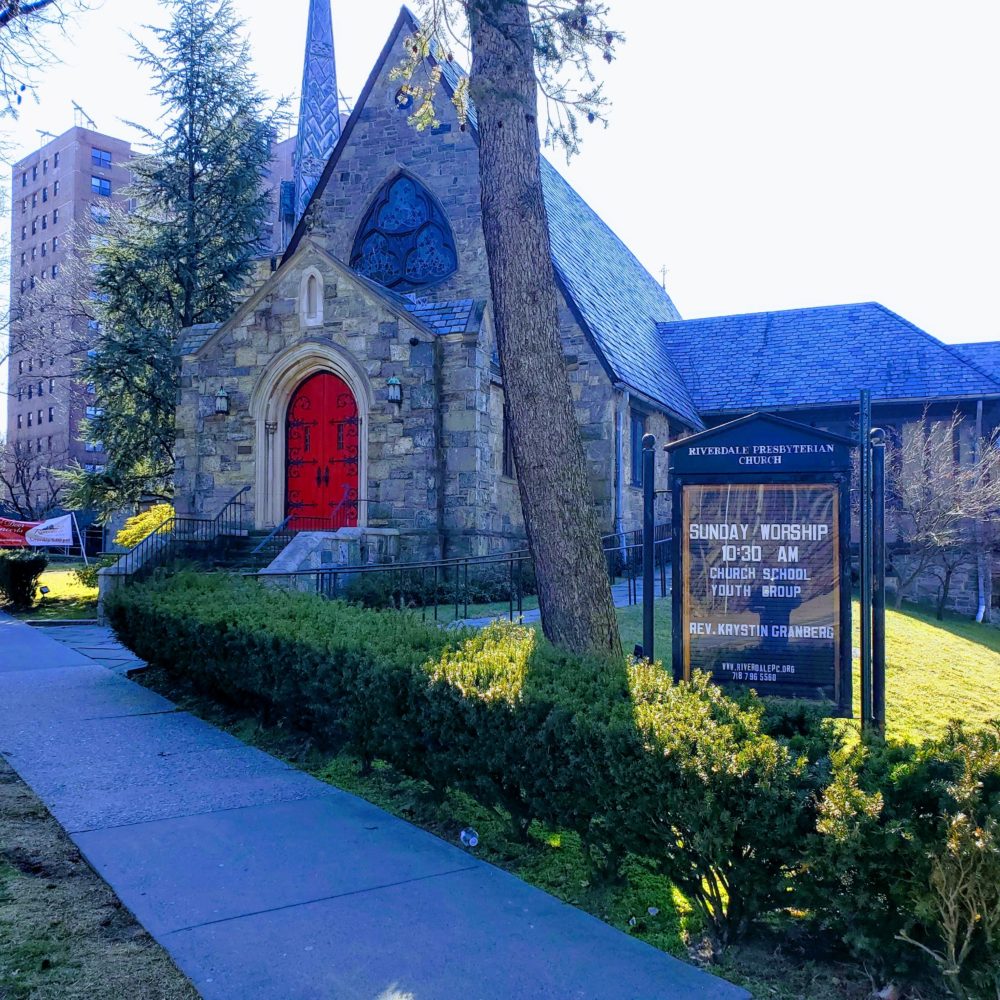
Just minutes before the Sunday morning service, Riverdale Presbyterian Church in the Bronx feels more like a mini social hour than a sanctuary. The gothic-inspired structure under a great dome is readying itself for the sermon.
On the right side of a vast altar sit dozen choir members, men and women, in long red gowns with white trimmings around their necks.
Riverdale Presbyterian, located at 4765 Henry Hudson Parkway, is a church diverse in both age and culture. On this Sunday morning, Blacks and Whites, Asians and Hispanics chat together in wooden pews that form a semi-circle around the great altar. A large loaf of bread and a goblet of wine are placed intentionally at the center of the altar, ready to be broken and eaten as a memorial to the body of Christ.
Between gaps of empty pews, huddles of three or four congregants, mostly women, whisper and chuckle quietly, with familiarity of old friends catching up.
“They better ring these bells soon,” a middle-aged woman mumbles under her breath to the man sitting next to her. “It is already 10:33 a.m.”
Churchgoers continue to speak amongst themselves for a few more minutes until a distinct, piercing sound fills the air, leading to a sudden change in the atmosphere.
Cling-cling. Pause. Cling-Cling. Pause. Cling-Cling.
The hand bells sound as though they are only a few feet away, but the bells and whoever rang them are out of sight. Some churchgoers bow their heads in solemn reverence, others simply look off into the distance.
The ringing continues for approximately 20 seconds.
A few moments later, Reverend Krystin Granberg stands and offers a warm greeting, followed by an organ playing the hymn, “Round about the Mountain.” The attendees listen quietly, before standing and reciting the “call to worship,” in a call and response format as Granberg takes her seat at the altar.
Granberg: Lord, open unto me
All: Open unto me--- light for my darkness
After the scriptures are recited, the sermon is preached and the elements of the bread and wine are served, the service is over.
Cling-Cling. Pause. Cling-Cling. Pause. Cling-Cling.
Granberg stands from her seat at the altar, walks towards the center of the church and continues down the center aisle to stand by the entrance of the sanctuary.
A hymn called, “Fugue in F Major,” plays in the postlude, a final piece of music at the end of a service. The congregants observe the organist as his notes get higher and more powerful until a final elevated, beautiful chord holds for a breath as the church erupts in a rapturous applause.
Most members head down to the basement for their weekly coffee hour as the service concludes.
Granberg keeps her post at the door, greeting people as they exit. The church seems livelier than before with people smiling and laughing joyfully, a stark contrast from the hushed voices and solemn looks over the last hour and a half.
As is the practice at other Protestant churches, the ringing of the bells at Riverside Presbyterian symbolizes both the start and end of service. Many Christian traditions see the bell as a call to worship or prayer. This tradition of the ringing of bells is also seen in the Catholic church, meant as a signal that the mass is about to begin. It was at the moment when the bells rang that all the whispers in the sanctuary came to a pause and a solemness fell over the congregants, as though the bells were a conscious switch from fellowshipping with friends to a posture of worship and prayer.

